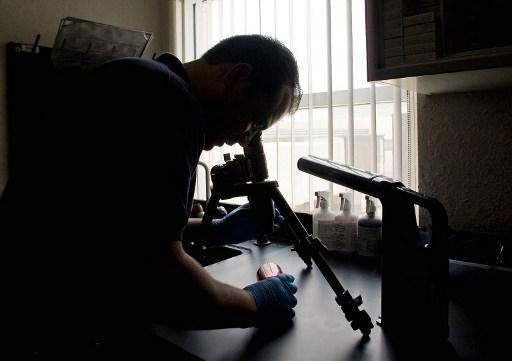A new diagnostic test developed by KU Leuven University will allow medical professionals to best decide what type of treatment should be used to treat certain brain tumours, using a biopsy, the university announced on Monday.
This new breakthrough means that cancer sufferers can avoid undergoing treatments that will not help tackle brain cancer and will allow them to know, in advance, which type of treatment will be most effective.
Each year, around 1,000 patients in Belgium are diagnosed with glioblastoma, an aggressive brain tumour. Treatment typically involves surgical removal, alongside radiotherapy and chemotherapy. Brain cancers are particularly aggressive because they are often comprised of several different types of cancer cells, meaning that the chances of relapse are high, and survival low, regardless of treatment.
This means that scientists must find new ways to prescribe effective treatments that eliminate all cancer cells. In the past, several new therapies for glioblastoma have been tested, but only a small number of patients have benefited from them. Clinical trials are not offered to all sufferers and the treatment often cannot be integrated into the patient’s treatment.
Related News
- Schizophrenia in young men often due to 'problematic' cannabis use
- VUB, Swiss researchers develop 'highly effective' antibiotic resistance test
The research from KU Leuven affirms that some patients can benefit from therapy, but that the specific treatment must be correctly determined. The researchers set out to determine which specific treatment was best for each patient.
The new diagnostic methods utilise the patient’s tumour cells, extracted by biopsy. They are then stored in the laboratory, allowing researchers to test several different treatment types on the cells.
“A small number of cells that survive the treatment is already enough to cause another tumour to grow,” explained Professor Frederik De Smet from the Department of Imaging and Pathology at KU Leuven. “Our method allows us to easily examine the effect of a drug on all cell types present in the patient, allowing us to determine which specific therapy is appropriate for a particular patient.”
Future use cases
The new method was developed for two cancer treatments already tested on animals. Before the test can be used on human patients, further clinical studies in a hospital setting will be needed.
De Smet and his colleagues are already testing the possibility of integrating another 15 treatment options into the test, and examining whether the method can be applied to brain tumours in children.
The researchers specify that it will not be possible to carry out the experiments related to the test in every hospital, largely due to the cost and necessary expertise. De Smet instead wants to set up a single, centralised test centre in Europe. “This centre could examine the different samples and provide treatment advice to local doctors,” the researcher said.
The results of the study were published on Monday in the Cellular and Molecular Life Sciences Journal.

